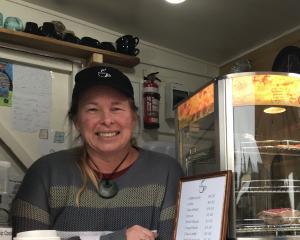
The scholars — all part of the nationwide four-year First Foundation programme — are spending the week working alongside Treespace at Point Arthur and Te Kākano Aotearoa Trust in Wānaka, gaining hands-on experience in native regeneration and community-led conservation.
They will also visit Contact Energy’s Clyde site, to see renewable energy generation in action and learn how large-scale infrastructure plays a role in the country’s sustainable future.
The trip is part of First Foundation’s broader effort to reduce its carbon footprint while continuing to deliver its work across the country.
Having recognised that travel was an unavoidable part of connecting with students, mentors and partners nationwide, the organisation committed to offsetting its emissions through its partnership with Trees That Count.
This year, First Foundation has directed its Trees That Count donation to the Wānaka Catchment Group’s Wai Ora Project — a local initiative focused on improving water quality and biodiversity through riparian planting, fencing and farm-based restoration.
"We’re a contact sport," First Foundation chief executive Kirk Sargent said.
"Our work relies on being face to face with people — students, schools, mentors and partners across the motu.
"We can’t remove travel from what we do, but we can take responsibility for it.
"Supporting a project like the Wānaka Catchment Group through Trees That Count means our offset has a real, local impact."
The Wai Ora Project had already achieved major outcomes with more than 52,000 native plants established, 22km of riparian fencing installed, and 94ha of land fully protected from stock.
It had also built strong community engagement, connecting farmers, environmental groups and schools around shared goals for freshwater health.
The scholars’ hands-on experiences complemented this commitment, Mr Sargent said.
"Our programme is all about education and opportunity — but that’s not just in classrooms.
"Working with groups like Te Kākano, Treespace and Contact Energy helps our scholars understand kaitiakitanga in action.
"They’re seeing how local action and large-scale industry both play a role in New Zealand’s sustainability story."
The Foundation’s sustainability approach sat alongside its core mission: breaking down barriers to tertiary education for talented young New Zealanders from low-income backgrounds.
Each scholar received financial assistance, a dedicated mentor, and exposure to the world of work — support that helped them succeed at university and beyond.
"These scholars are future engineers, scientists and community leaders," Mr Sargent said.
"Understanding how sustainability fits into their work and decisions is just as important as their degrees.
"That is why being here matters."












